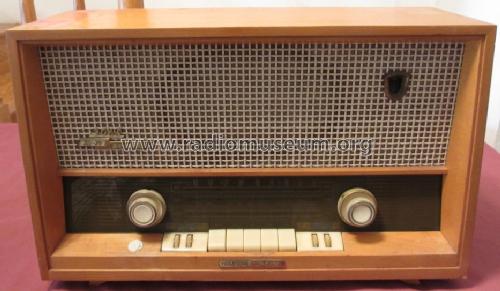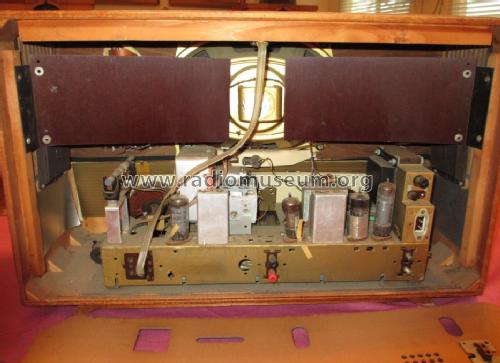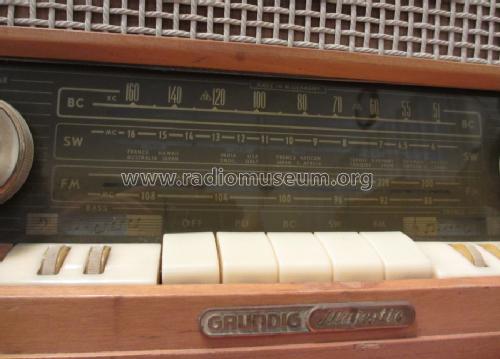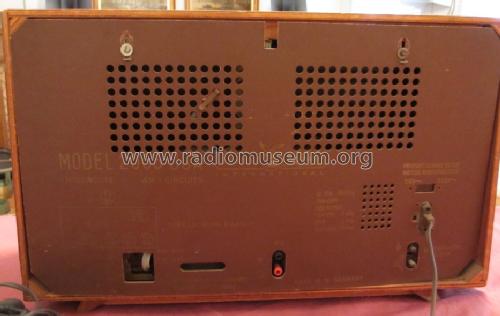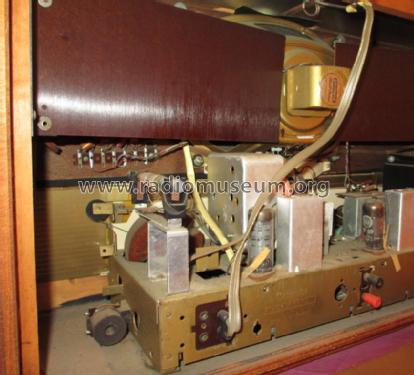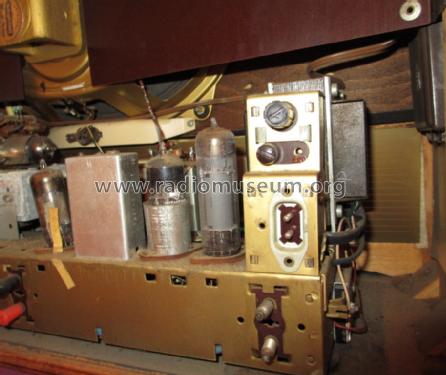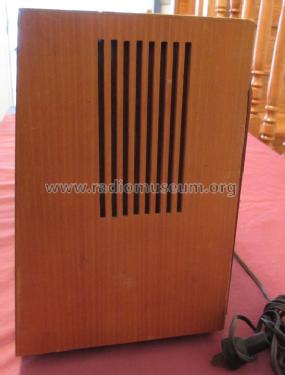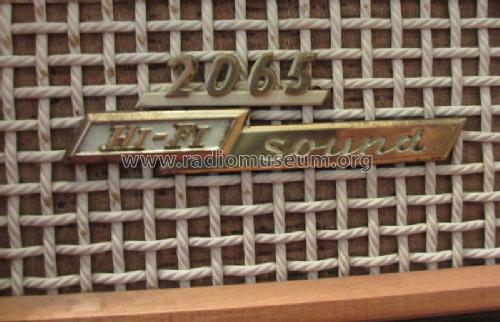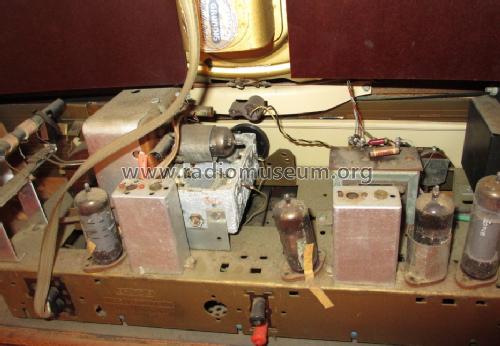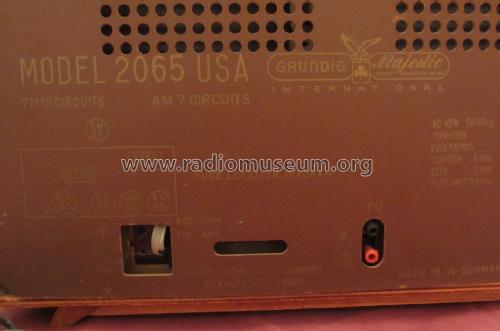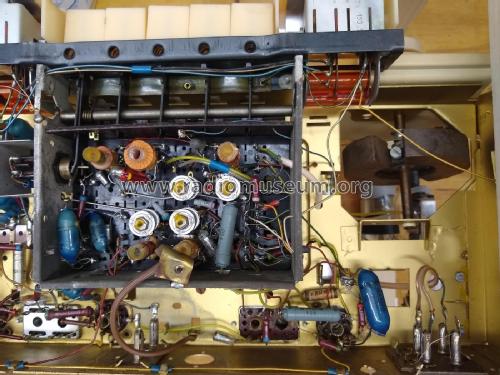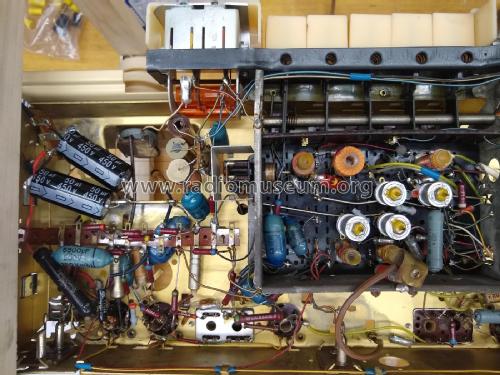Majestic 2065 USA HiFi Sound
Grundig (Radio-Vertrieb, RVF, Radiowerke); Fürth/Bayern
- Pays
- Allemagne
- Fabricant / Marque
- Grundig (Radio-Vertrieb, RVF, Radiowerke); Fürth/Bayern
- Année
- 1956 ?
- Catégorie
- Radio - ou tuner d'après la guerre 1939-45
- Radiomuseum.org ID
- 157968
-
- alternative name: Grundig Portugal || Grundig USA / Lextronix
- No. de tubes
- 6
- No. de transistors
- Semi-conducteurs
- Tr.Gl.=Metal-rectif.
- Principe général
- Super hétérodyne (en général); Modèle pour exporter
- Circuits accordés
- 7 Circuits MA (AM) 10 Circuits MF (FM)
- Gammes d'ondes
- PO, OC et FM
- Tension / type courant
- Alimentation Courant Alternatif (CA) / 110-220 Volt
- Haut-parleur
- 2 HP
- Matière
- Boitier en bois
- De Radiomuseum.org
- Modèle: Majestic 2065 USA HiFi Sound - Grundig Radio-Vertrieb, RVF,
- Forme
- Modèle de table avec boutons poussoirs.
- Dimensions (LHP)
- 540 x 340 x 220 mm / 21.3 x 13.4 x 8.7 inch
- Remarques
-
Grundig Majestic 2065 USA HiFi Sound; US export model,
FM: 88 - 108 MHz,
BC: ~510 - 1600 KHz,
SW: ~6 - 18 MHz,
2 x bass & 2 x treble control, phono in, ext. speaker terminal, ext. antenna in, int. FM dipole antenna, 45 W power consumption, made in W. Germany,
compare with German domestic market version Grundig Musikgerät Zauberklang 2065.
- Auteur
- Modèle crée par d'un membre de A. Voir les propositions de modification pour les contributeurs supplémentaires.
- D'autres Modèles
-
Vous pourrez trouver sous ce lien 6240 modèles d'appareils, 5481 avec des images et 4238 avec des schémas.
Tous les appareils de Grundig (Radio-Vertrieb, RVF, Radiowerke); Fürth/Bayern
Collections
Le modèle Majestic fait partie des collections des membres suivants.
Contributions du forum pour ce modèle: Grundig Radio-: Majestic 2065 USA HiFi Sound
Discussions: 1 | Publications: 3
Hello All:
I'm working on a Grundig 2065 USA model. I've done the usual recitifer replacement and recapping and it is playing quite well, but I noticed these two wires looped together off the UKW switching and don't know what to make of it. The wires are insulated wires that are looped together, not soldered or physically connecting the copper in any way. They appear original (I don't see any evidence that this radio had been worked on prior to me). I believe the wires are "connecting" a coil to the RF can. Can this be correct and, and if so, why would they have done this?
Thanks,
Mark
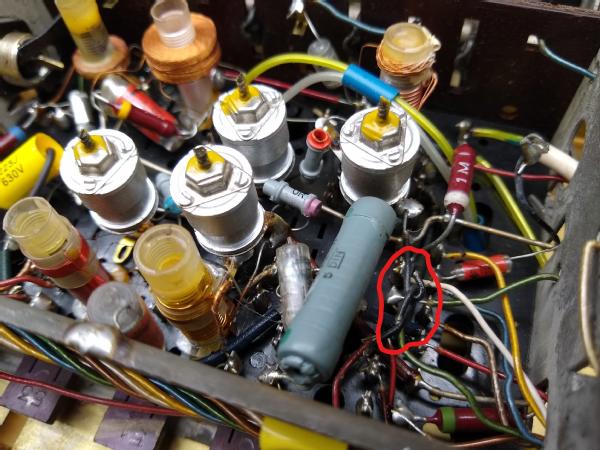
Mark Pennington, 06.Jul.21
